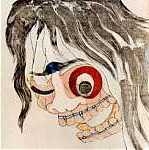If you had complete power to engineer a long, vigorous life, you might start by choosing to be born in Japan.
The country has the highest "healthy life expectancy" in the world, with Japanese boys and girls expected to live to 73 without any major illness or disability, according to a recent study published in The Lancet. Their overall life expectancy is in the 80s.
The U.S. doesn't even make the top 10, with an American boy born in 2013 expected to enjoy good health until about age 65 and live 76 years, on average.
What is it about Japan that makes it such a center of wellness? It's a question Naomi Moriyama and her husband William Doyle set out to investigate in their new book, "Secrets of the World's Healthiest Children: Why Japanese Children Have the Longest, Healthiest Lives — And How Yours Can Too."
"The way Japanese people eat and move gives them a major longevity and health advantage," Moriyama — who grew up in Japan and is now based in New York — told TODAY.
"Compared with other developed nations, Japanese people on average eat fewer calories per day, and in a healthier pattern: more fish, more vegetable products, less meat and dairy, smaller desserts and more reasonable portion sizes."
Here are six lessons from Japan your family can adopt to boost your health:
| Hot Topics | |
|---|---|
Japan's kids are world's healthiest
33 posts
• Page 1 of 2 • 1, 2
Japan's kids are world's healthiest
Secrets of the world's healthiest children: 6 longevity lessons from Japan
-

Samurai_Jerk - Maezumo
- Posts: 14387
- Joined: Mon Feb 09, 2004 7:11 am
- Location: Tokyo
Re: Japan's kids are world's healthiest
Samurai_Jerk wrote:Secrets of the world's healthiest children: 6 longevity lessons from JapanHere are six lessons from Japan your family can adopt to boost your health:
- Eat your rice grain by grain, with chopsticks.
- Eat your rice grain by grain, with chopsticks.
- Did I mention rice?
- Do that what nobody on earth does: walk!
- Do what every salariman does: eat your meals together with your kids and don't be authoritarian.
- Take a Japanese style school lunch, including healthy Cetacea meat.
“To learn who rules over you, simply find out who you are not allowed to criticize.”
“I know not with what weapons World War III will be fought, but World War IV will be fought with sticks and stones.” ― Albert Einstein
-

Russell - Maezumo
- Posts: 8580
- Images: 1
- Joined: Fri Aug 13, 2010 11:51 pm
Re: Japan's kids are world's healthiest
Russell wrote:[*] Do what every salariman does: eat your meals together with your kids and don't be authoritarian.
 That chick has rose coloured lenses thicker than a space telescope. Not sure about the dietary and nutritional science but whadda load of Nihonjinron crap. We used to have a rule that any paper about Japan published by a reasonably attractive Japanese woman and an older scholar that wants to or is schporking her should be read with a giggle and a smirk.
That chick has rose coloured lenses thicker than a space telescope. Not sure about the dietary and nutritional science but whadda load of Nihonjinron crap. We used to have a rule that any paper about Japan published by a reasonably attractive Japanese woman and an older scholar that wants to or is schporking her should be read with a giggle and a smirk.Now, Russell, as a friendly suggestion, you might want to round out those additional rules by adding something about eating boiled sticky rice 3 times a day.............
-

kurogane - Maezumo
- Posts: 4483
- Joined: Fri Aug 04, 2006 5:24 pm
- Location: Here
Re: Japan's kids are world's healthiest
I love going back to Canada. I become so unfat when compared to all my contemporaries.
-

dimwit - Maezumo
- Posts: 3827
- Images: 3
- Joined: Tue Jun 01, 2004 11:29 pm
Re: Japan's kids are world's healthiest
I love it until I catch up to them. Then I just feel, well.............fat. But yeah, a good comparison there. We're pretty f'in fat lately. Especially outside Yoga-YOLO-Hippyville. I know it's partly diet, but I think a big factor is the 15-20 minutes a day less of normal exercise (aka daily life) that I get in Japan because of cavernous train stations, urban bicycling and those tiny fridges that require daily shopping.
-

kurogane - Maezumo
- Posts: 4483
- Joined: Fri Aug 04, 2006 5:24 pm
- Location: Here
Re: Japan's kids are world's healthiest
kurogane wrote:I love it until I catch up to them. Then I just feel, well.............fat. But yeah, a good comparison there. We're pretty f'in fat lately. Especially outside Yoga-YOLO-Hippyville. I know it's partly diet, but I think a big factor is the 15-20 minutes a day less of normal exercise (aka daily life) that I get in Japan because of cavernous train stations, urban bicycling and those tiny fridges that require daily shopping.
I think it is completely the exercise thingy. Where I live, a bicycle really is about 100 times more convienent than a car and I don't even bother driving in Japan.
-

dimwit - Maezumo
- Posts: 3827
- Images: 3
- Joined: Tue Jun 01, 2004 11:29 pm
Re: Japan's kids are world's healthiest
I've gained a lot of weight in Japan but I exercise less and eat much worse here than I did in the States. Exercise doesn't impact weight all that much tough. It's really about calorie consumption. The Japanese remain thin because they consume fewer calories. You could eat nothing but cake and stay thin if you kept your calories to 1500 a day. You wouldn't be healthy but you also wouldn't be fat.
-

Samurai_Jerk - Maezumo
- Posts: 14387
- Joined: Mon Feb 09, 2004 7:11 am
- Location: Tokyo
Re: Japan's kids are world's healthiest
Life expectancy, healthiest in the world...are all the dead but still living on paper included in those stats?
I don't buy into the less disease assertions either...I've never known a place where more people either gaman'd or just didn't go to the dentist/doctor out of some sort of irrational fear. If they die at home, I somehow doubt their disease gets reported in those stats.
I don't buy into the less disease assertions either...I've never known a place where more people either gaman'd or just didn't go to the dentist/doctor out of some sort of irrational fear. If they die at home, I somehow doubt their disease gets reported in those stats.
-

matsuki - Posts: 16047
- Joined: Wed Feb 02, 2011 4:29 pm
- Location: All Aisu deserves a good bukkake
Re: Japan's kids are world's healthiest
I am not a weight junkie like Japanese are, but if I exercise more I can get away with eating about the same and feel better and definitely get toner and trimmer. Lately it's probably a lot to do with a slowing metabolism, but even then I prefer more exercise to any concerted effort at calorie restriction, though healthier calories seem a valid option. BTW, using your cake analogy there: I know lots of Japanese that are quite thin but are in terrible shape in terms of muscle strength and cardiovascular capability; they simply don't eat enough to get fat, but what is there I would call flabby. So there's another X on the study, though I get they are on about the general drag on the body and health obesity causes, and it's obviously an Ideal Type setup, which is always half BS anyways. Rather shocking that in 2015 there are people that still use such simplistic BS.
-

kurogane - Maezumo
- Posts: 4483
- Joined: Fri Aug 04, 2006 5:24 pm
- Location: Here
Re: Japan's kids are world's healthiest
kurogane wrote:Rather shocking that in 2015 there are people that still use such simplistic BS.
Is it really so different from the "gluten is poison" fashion? What used to fill the spaces between advertisements in women's magazines now exists as clickbait.
-

wagyl - Maezumo
- Posts: 5950
- Images: 0
- Joined: Thu Mar 17, 2011 11:08 pm
- Location: The Great Plain of the Fourth Instance
Re: Japan's kids are world's healthiest
kurogane wrote:I am not a weight junkie like Japanese are, but if I exercise more I can get away with eating about the same and feel better and definitely get toner and trimmer. Lately it's probably a lot to do with a slowing metabolism, but even then I prefer more exercise to any concerted effort at calorie restriction, though healthier calories seem a valid option. BTW, using your cake analogy there: I know lots of Japanese that are quite thin but are in terrible shape in terms of muscle strength and cardiovascular capability; they simply don't eat enough to get fat, but what is there I would call flabby. So there's another X on the study, though I get they are on about the general drag on the body and health obesity causes, and it's obviously an Ideal Type setup, which is always half BS anyways. Rather shocking that in 2015 there are people that still use such simplistic BS.
Exercise is good for you but it doesn't have much of an impact on weight loss unless you're training like a serious athlete. It does reduce visceral fat which is definitely a good thing. My biggest issue is I booze a lot and I'm one of those people who has to eat when he boozes. I have some booze-bag friends who are the opposite. Eating when they drink makes them feel sick so they don't put the weight on. None of us will live very long but at least they'll be thin when they die.
-

Samurai_Jerk - Maezumo
- Posts: 14387
- Joined: Mon Feb 09, 2004 7:11 am
- Location: Tokyo
Re: Japan's kids are world's healthiest
Yeah, I mean general fitness and well being, or just feeling better. The actual numbers on the scale don't mean much to me anyways. I find when I get on my bicycle I lose 5-8 pounds quickly, but if I am training regularly (for skiing, etc) weight loss either stops or actually increases again. I suppose that is the muscle vs. fat thingy. I generally go by how my pants fit: when they "shrink" on me I know it's time to move more. Funny about the eating while drinking: I hate not eating because I get a sloppy drunk and a growly stomach but I still do it sometimes, and then regret it later. Never understood that Real Canadian thing about not eating while drinking. They claim it's Common Sense, but I suspect it's just a being cheap thing mostly. I prefer the Japanese style of munching while drinking, but the pub snacks here are pretty blah.
-

kurogane - Maezumo
- Posts: 4483
- Joined: Fri Aug 04, 2006 5:24 pm
- Location: Here
Re: Japan's kids are world's healthiest
kurogane wrote:Never understood that Real Canadian thing about not eating while drinking.
If you're eatin', you're cheatin'! I never used to eat while I drank but after getting used to it in Japan, I can't go back. When I visit the US and go drinking with buddies I usually end up feeling queasy after pounding drinks with no food all night.
-

Samurai_Jerk - Maezumo
- Posts: 14387
- Joined: Mon Feb 09, 2004 7:11 am
- Location: Tokyo
Re: Japan's kids are world's healthiest
Samurai_Jerk wrote: If you're eatin', you're cheatin'!.
Yeeks. A friend pulled that line on me a month or so ago. I just hate that nagging growling and the sloppiness of the drunk, but most of the places I drink here have pretty lame nibblies, and nobody really hangs out at the Japanese Izakaya places, which are more hipster bistros than anything we would recognise by that name.
-

kurogane - Maezumo
- Posts: 4483
- Joined: Fri Aug 04, 2006 5:24 pm
- Location: Here
Re: Japan's kids are world's healthiest
Much as I hate the term Anglo Saxon, partly for the fact that it ignores the Celtic Fringe, I am interested to see that the concept that "food gets in the way of drinking time" is widespread across the Anglophone world. I had always understood it to be a result of restricted hours at drinking establishments brought on by the temperance movement, when you didn't have enough time to get merry if you also had food. Maybe I am mistaken, maybe I am only half correct.
-

wagyl - Maezumo
- Posts: 5950
- Images: 0
- Joined: Thu Mar 17, 2011 11:08 pm
- Location: The Great Plain of the Fourth Instance
Re: Japan's kids are world's healthiest
That has always struck me as part of the ethos. Certainly my poor/cheap friends claim not eating makes for a much cheaper drunk; they talk about eating at the pub as a waste of money even though they think the food itself perfectly fine fare, which I don't. In Scootland I thought there was also something about drinking at the pub and going home to eat, which might be parsimony, or might just be Fear of the Wife. If I really am only in for 2 then fine, but if I am already hungry it's no fun, so I eat.
-

kurogane - Maezumo
- Posts: 4483
- Joined: Fri Aug 04, 2006 5:24 pm
- Location: Here
Re: Japan's kids are world's healthiest
wagyl wrote:Is it really so different from the "gluten is poison" fashion?
I meant the simplistic monolithic cultural oppositions, as though there was no variety except between Japanese and Western Man and none within either. Typical sophomoric Japan vs. The Gaikoku (i.e. Fat American) stuff. Also, the Japanese longevity trend is probably a bubble, and will decrease once the pre-war and immediate postwar generations jump the ship. Very shoddy methodology in MYHOMO. But it seems to be an Oprah Club type book, so meh.
That UTube is hilarious. Thanks. I see from the comments sections it is a case study in Poe's Law. He is very, very good. I would love to see some outtakes where he loses it trying to deliver some of those lines straight faced.
-

kurogane - Maezumo
- Posts: 4483
- Joined: Fri Aug 04, 2006 5:24 pm
- Location: Here
Re: Japan's kids are world's healthiest
So a heartwarming story about super healthy Japanese kids turned into a discussion about gaijin drinking strategies
Where I grew up you had your tea then went out for a drink, and got curry chips on the way home from the Chinese takeaway.
Back on nominal topic, the numbers don't tell the story, there are a lot of Japanese men dying alone in their 40s, conbini bento and happoshu is not a recipe for longevity
Where I grew up you had your tea then went out for a drink, and got curry chips on the way home from the Chinese takeaway.
Back on nominal topic, the numbers don't tell the story, there are a lot of Japanese men dying alone in their 40s, conbini bento and happoshu is not a recipe for longevity
-

legion - Maezumo
- Posts: 2681
- Joined: Thu Dec 09, 2010 11:30 pm
- Location: Tokyo
Re: Japan's kids are world's healthiest
legion wrote:So a heartwarming story about super healthy Japanese kids turned into a discussion about gaijin drinking strategies
All my postgrad colleagues are fat and unhealthy. They're 7-10 years younger than I (mid 40s). As I wrote above, the exceptional longevity is very probably a discrete demographic event, not necessarily a trend. If corrected for later, early non-fatal malnutrition seems to promote exaggerated longevity, though not necessarily of the happy and healthy type, mostly due to bone and joint deterioration related back to the early malnutrition. Okinawan longevity is a prime example of this: Darwin's nominees are still with us because they cleared the cull. The Okinawans my age make Konishiki and Akebono look like poster boys for a Participaction campaign https://en.wikipedia.org/wiki/ParticipACTION

That is the dark side to any of these fluffy stories and "studies", and it gets up my nose. I think it's simply super that Japanese kids are healthier and happier, and I think even Matuski and Coligny might give them that..........on a good day
BTW, for the uninitiated, Legion's pre-drinking Tea includes food. It's a meal. But they call it Tea.
-

kurogane - Maezumo
- Posts: 4483
- Joined: Fri Aug 04, 2006 5:24 pm
- Location: Here
Re: Japan's kids are world's healthiest
kurogane wrote:That is the dark side to any of these fluffy stories and "studies", and it gets up my nose. I think it's simply super that Japanese kids are healthier and happier, and I think even Matuski and Coligny might give them that..........on a good dayJapanese kids are hilarious. I approve of them.
Hearing kids of ANY country are healthy and happy is a good thing. It's just the "simplistic monolithic cultural oppositions, as though there was no variety except between Japanese and Western Man and none within either. Typical sophomoric Japan vs. The Gaikoku (i.e. Fat American) stuff." that makes me roll my eyes at these types of "feel good" nihonjinron articles.
-

matsuki - Posts: 16047
- Joined: Wed Feb 02, 2011 4:29 pm
- Location: All Aisu deserves a good bukkake
Re: Japan's kids are world's healthiest
kurogane wrote:That is the dark side to any of these fluffy stories and "studies", and it gets up my nose. I think it's simply super that Japanese kids are healthier and happier, and I think even Matuski and Coligny might give them that..........on a good dayJapanese kids are hilarious. I approve of them.
If you put fifty kids with down syndrome in the same room, there gunna be a lots of hugging...
-

Coligny - Posts: 21822
- Images: 10
- Joined: Sat Jan 17, 2009 8:12 pm
- Location: Mostly big mouth and bad ideas...
Re: Japan's kids are world's healthiest
matsuki wrote:kurogane wrote:That is the dark side to any of these fluffy stories and "studies", and it gets up my nose. I think it's simply super that Japanese kids are healthier and happier, and I think even Matuski and Coligny might give them that..........on a good dayJapanese kids are hilarious. I approve of them.
Hearing kids of ANY country are healthy and happy is a good thing. It's just the "simplistic monolithic cultural oppositions, as though there was no variety except between Japanese and Western Man and none within either. Typical sophomoric Japan vs. The Gaikoku (i.e. Fat American) stuff." that makes me roll my eyes at these types of "feel good" nihonjinron articles.
Fully agreed. I was just trying to be diplomatic, given that his are as Japanese as they are whatever he is. I thought that article was a sham and they are to. If they are actual working academics and not just Oprah Book Club types they deserve to be jeered. Either way they won't. Japanese Kids and the Stuff They Eat is stuff white people like. rather sad, actually.
-

kurogane - Maezumo
- Posts: 4483
- Joined: Fri Aug 04, 2006 5:24 pm
- Location: Here
Re: Japan's kids are world's healthiest
kurogane wrote:
What a fabuolous gay porn star moustache he has. I hoped for his sake that he shaved it off.
Participaction. I remember that. It started off as a NPO, was nationalized by Trudeau senior and used by governments thereafter as a dumping ground for political appointees who lacked the 'talent' for the senate.
-

dimwit - Maezumo
- Posts: 3827
- Images: 3
- Joined: Tue Jun 01, 2004 11:29 pm
Re: Japan's kids are world's healthiest
Big Story:
More...
TOKYO (AP) — A new study says children living near the Fukushima nuclear meltdowns have been diagnosed with thyroid cancer at a rate 20 to 50 times that of children elsewhere, a difference the authors contend undermines the government's position that more cases have been discovered in the area only because of stringent monitoring.
Most of the 370,000 children in Fukushima prefecture (state) have been given ultrasound checkups since the March 2011 meltdowns at the tsunami-ravaged Fukushima Dai-ichi nuclear plant. The most recent statistics, released in August, show that thyroid cancer is suspected or confirmed in 137 of those children, a number that rose by 25 from a year earlier. Elsewhere, the disease occurs in only about one or two of every million children per year by some estimates.
"This is more than expected and emerging faster than expected," lead author Toshihide Tsuda told The Associated Press during a visit to Tokyo. "This is 20 times to 50 times what would be normally expected."...
More...
-

Grumpy Gramps - Maezumo
- Posts: 2204
- Joined: Mon Oct 14, 2013 2:22 am
- Location: 地獄の便所
Re: Japan's kids are world's healthiest
Good slashdot thread few days ago:
http://m.slashdot.org/story/301039
Observation bias as well as "lack of" control samples are put to rest pretty early.
Basically 1- nope and 2- thyroid cancer don't just go silent or self cure if undiagnosed. That has been accounted for.
Threre is also one post from a thyroid cancer survivor listing the day to day issues faced, just in case we also got a sprinkle of "it's the easiest cancer to cure so it don't count as an issue"...
Again...
http://m.slashdot.org/story/301039
Observation bias as well as "lack of" control samples are put to rest pretty early.
Basically 1- nope and 2- thyroid cancer don't just go silent or self cure if undiagnosed. That has been accounted for.
Threre is also one post from a thyroid cancer survivor listing the day to day issues faced, just in case we also got a sprinkle of "it's the easiest cancer to cure so it don't count as an issue"...
Again...
-

Coligny - Posts: 21822
- Images: 10
- Joined: Sat Jan 17, 2009 8:12 pm
- Location: Mostly big mouth and bad ideas...
Re: Japan's kids are world's healthiest
Coligny wrote:Good slashdot thread few days ago:
http://m.slashdot.org/story/301039
Observation bias as well as "lack of" control samples are put to rest pretty early.
Basically 1- nope and 2- thyroid cancer don't just go silent or self cure if undiagnosed. That has been accounted for.
Threre is also one post from a thyroid cancer survivor listing the day to day issues faced, just in case we also got a sprinkle of "it's the easiest cancer to cure so it don't count as an issue"...
Again...
You forgot to mention the bananas, bro...
“To learn who rules over you, simply find out who you are not allowed to criticize.”
“I know not with what weapons World War III will be fought, but World War IV will be fought with sticks and stones.” ― Albert Einstein
-

Russell - Maezumo
- Posts: 8580
- Images: 1
- Joined: Fri Aug 13, 2010 11:51 pm
Re: Japan's kids are world's healthiest
Coligny wrote:Threre is also one post from a thyroid cancer survivor listing the day to day issues faced, just in case we also got a sprinkle of "it's the easiest cancer to cure so it don't count as an issue"
That's irrelevant anyway because even if true it says nothing about whether or not radiation is causing it.
Faith is believing what you know ain't so. -- Mark Twain
-

Samurai_Jerk - Maezumo
- Posts: 14387
- Joined: Mon Feb 09, 2004 7:11 am
- Location: Tokyo
Re: Japan's kids are world's healthiest
The PDF of the study article can be found here…. (second article listed, and click on PDF…)
http://journals.lww.com/epidem/toc/9000/00000
If I read it correctly, it reports a 30 fold increase vs the rest of Japan and a total of 110 cases discovered within the study area. Part of the increase in `finding` these cases would simply be because they were looking rather intensively, while in other areas of Japan (and elsewhere) nobody bothers to look, and only find cases when they are manifest/symptomatic.
http://journals.lww.com/epidem/toc/9000/00000
If I read it correctly, it reports a 30 fold increase vs the rest of Japan and a total of 110 cases discovered within the study area. Part of the increase in `finding` these cases would simply be because they were looking rather intensively, while in other areas of Japan (and elsewhere) nobody bothers to look, and only find cases when they are manifest/symptomatic.
-

Salty - Maezumo
- Posts: 775
- Joined: Fri Nov 21, 2014 2:22 pm
Re: Japan's kids are world's healthiest
Grumpy Gramps wrote:Big Story:
"This is more than expected and emerging faster than expected," lead author Toshihide Tsuda told The Associated Press during a visit to Tokyo. "This is 20 times to 50 times what would be normally expected."...
More...
It's emerging exactly as expected, same as Chernobyl, the symptoms begin to show 3 to 5 years after the meltdown.
It was always going to be this way, unlikely to cause any detectable rise in cases in Tokyo, highly likely to cause a rise near to the plant. As with cancer clusters in Scotland, the government & TEPCO will spend the next 20 years fiddling with the statistics to avoid admitting a connection and paying claims for compensation.
-

legion - Maezumo
- Posts: 2681
- Joined: Thu Dec 09, 2010 11:30 pm
- Location: Tokyo
Re: Japan's kids are world's healthiest
FUCKING BANANAZ !!!
That should do it, tkx bro..
Also, Potato award for SJ...
This precise statement was only posted to preempt and highlight the insanity of a claim stating that it's the best cancer to have anyway because -(insert madness here)-
I honestly prefer when you stick to statements highlighting that I don't make any sense, stud...
That should do it, tkx bro..
Also, Potato award for SJ...
This precise statement was only posted to preempt and highlight the insanity of a claim stating that it's the best cancer to have anyway because -(insert madness here)-
I honestly prefer when you stick to statements highlighting that I don't make any sense, stud...
You do not have the required permissions to view the files attached to this post.
-

Coligny - Posts: 21822
- Images: 10
- Joined: Sat Jan 17, 2009 8:12 pm
- Location: Mostly big mouth and bad ideas...
33 posts
• Page 1 of 2 • 1, 2
Who is online
Users browsing this forum: No registered users and 6 guests

